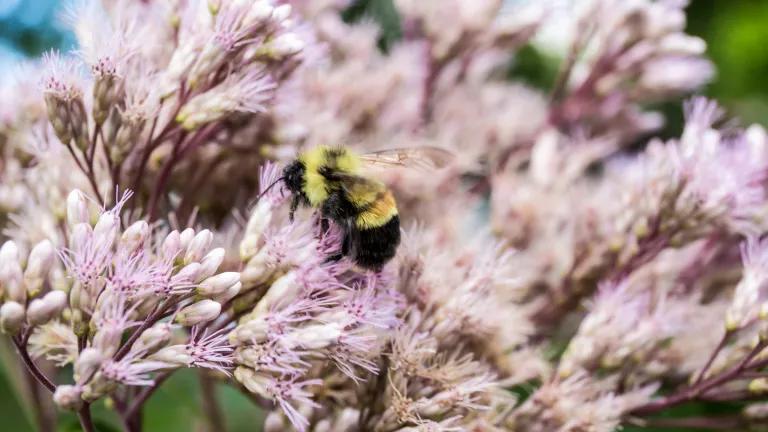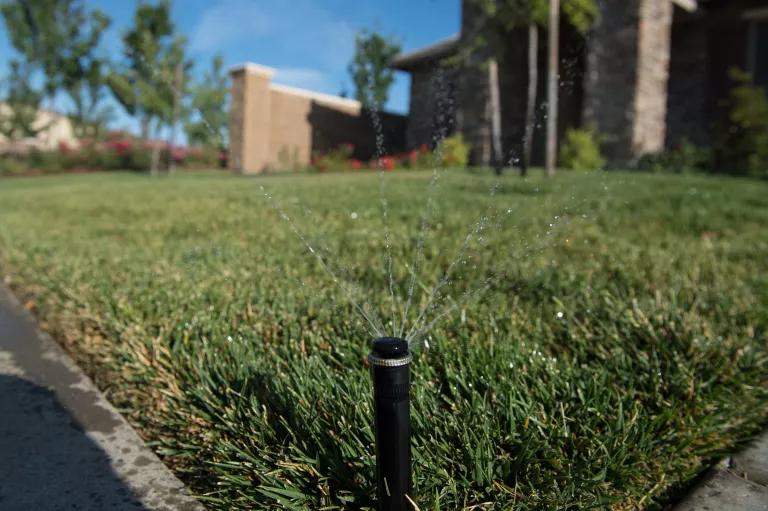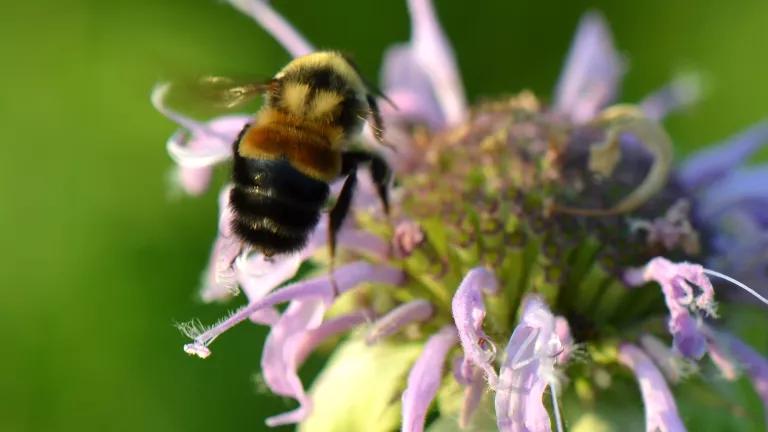New Jersey Enacts Groundbreaking Neonic Legislation
New Jersey has enacted legislation that significantly curtails use of neonicotinoid pesticides, or "neonics," insect-killers that are a leading cause of mass bee losses, contribute to declines in birds and other wildlife, and pose risks to human health.

Neonics commonly contaminate the pollen and nectar that bumble bees and other pollinators rely on for food.
A2070/S1016, a bill championed by Senator Bob Smith and Assemblyman Clinton Calabrese and signed into law by Governor Phil Murphy, gives New Jersey's bees and other wildlife a fighting chance against rampant neonic contamination and mitigates risks to human health. It also makes the state a national leader on this issue of critical importance.
New Jersey has enacted the strongest, smartest restrictions in the country to rein in widespread pollution of the state with neurotoxic neonicotinoid pesticides—or “neonics.” Passage of the bill, A2070/S1016, isn’t just good news for New Jersey’s bees, birds, and other wildlife, but also the state’s mostly pollinator-dependent farmers and all residents that value clean water and a healthy environment. It is a game-changer that should serve as a model for other states across the country.
Neonics: Ecological Disasters
If you’ve heard of neonics, you’ve probably heard that they are a leading cause of the disappearance of bees nationwide. About fifteen years ago, beekeepers saw annual colony losses skyrocket from about 10-15% annually to upwards of 30% annually. In New Jersey, beekeepers now typically lose 40-50% of their colonies each year. This concerning new normal threatens upwards of $180 million in the state’s pollinator-dependent crops—including apples, blueberries, cherries, and more. In fact, bee and pollinator losses are likely already limiting crop production. Rutgers University research finds that many of these crops are “pollinator-limited,” meaning a lack of pollinators limits production.
Over the past decade, an extensive and growing body of research has found that neonics are a leading cause of bee declines. This includes a recent Cornell University analysis of over 1,110 peer-reviewed neonic studies (“Cornell Report”), extensive international research, and the largest neonic field study to date—funded by the pesticide industry itself.
Neonics are everywhere. Because they stay in soil for years, move easily in rainwater, and are widely used, they contaminate soil, water, plants—and even wildlife—across the country on a nearly unprecedented scale. Widespread use of neonics has been linked with mass losses of birds, the collapse of fisheries, and birth defects in white-tailed deer.
Worryingly, monitoring by the Centers for Disease Control and Prevention also finds that at least half the U.S. population is regularly exposed to a neonic—with higher levels found in children. This is a scary statistic, given that neonics have been linked to developmental harms in people and to developmental and reproductive harms in other mammals.

Neonics, which have been linked with health harms, commonly contaminate foods like apple sauce, spinach, and baby food.
Neonics in New Jersey
What does this all mean for New Jersey? A 2020 report by the NJ Department of Environmental Protection (DEP) paints a bleak picture. DEP collected over 250 samples of surface water and groundwater at 123 sites throughout the state, finding at least one neonic in over half of the samples tested. Even more concerning, most detections were above federal “benchmark” levels for harm to wildlife. DEP’s sampling mirrors previous federal water testing, which found neonics in waters nationwide, frequently at levels expected to harm aquatic ecosystems.
DEP also reported that the vast majority of known neonic use in New Jersey is from uses on lawns. Certified applicators—often landscapers—applied nearly 30,000 pounds of neonics to New Jersey lawns in 2016. But according to the Cornell Report, these neonic uses on lawns and ornamental plants pose serious risks to bees and are either unnecessary or easily replaceable with less harmful alternatives.

Licensed applicators apply the vast majority of neonics in NJ to lawns.
A Tailored Solution
By passing A2070/S1016, New Jersey leads the nation in the fight against neonic pollution. It provides a science-based, narrowly tailored approach to tackle this biggest and most harmful source of neonic contamination in New Jersey by prohibiting outdoor, non-agricultural neonic uses. In fact, the bill likely bans up to 70% of neonic uses in the state. At the same time, the bill allows DEP broad and flexible authority to permit certified applicators to use neonics to control invasive pests like the emerald ash borer and spotted lanternfly.
New Jersey has shown that even without broad bans like those imposed in the European Union, it’s possible to make substantial, meaningful progress by banning these “dumb” neonic uses that cause massive ecological harm with little to no benefit. In the midst of a biodiversity crisis--with birds, bees, and other wildlife disappearing--we are in desperate need of meaningful action to save wildlife. This legislation should serve as a model to drastically reduce the impacts of the most commonly used, incredibly toxic insecticides in the country. If we are going to tackle this problem nationwide, EPA and other states must take note.



